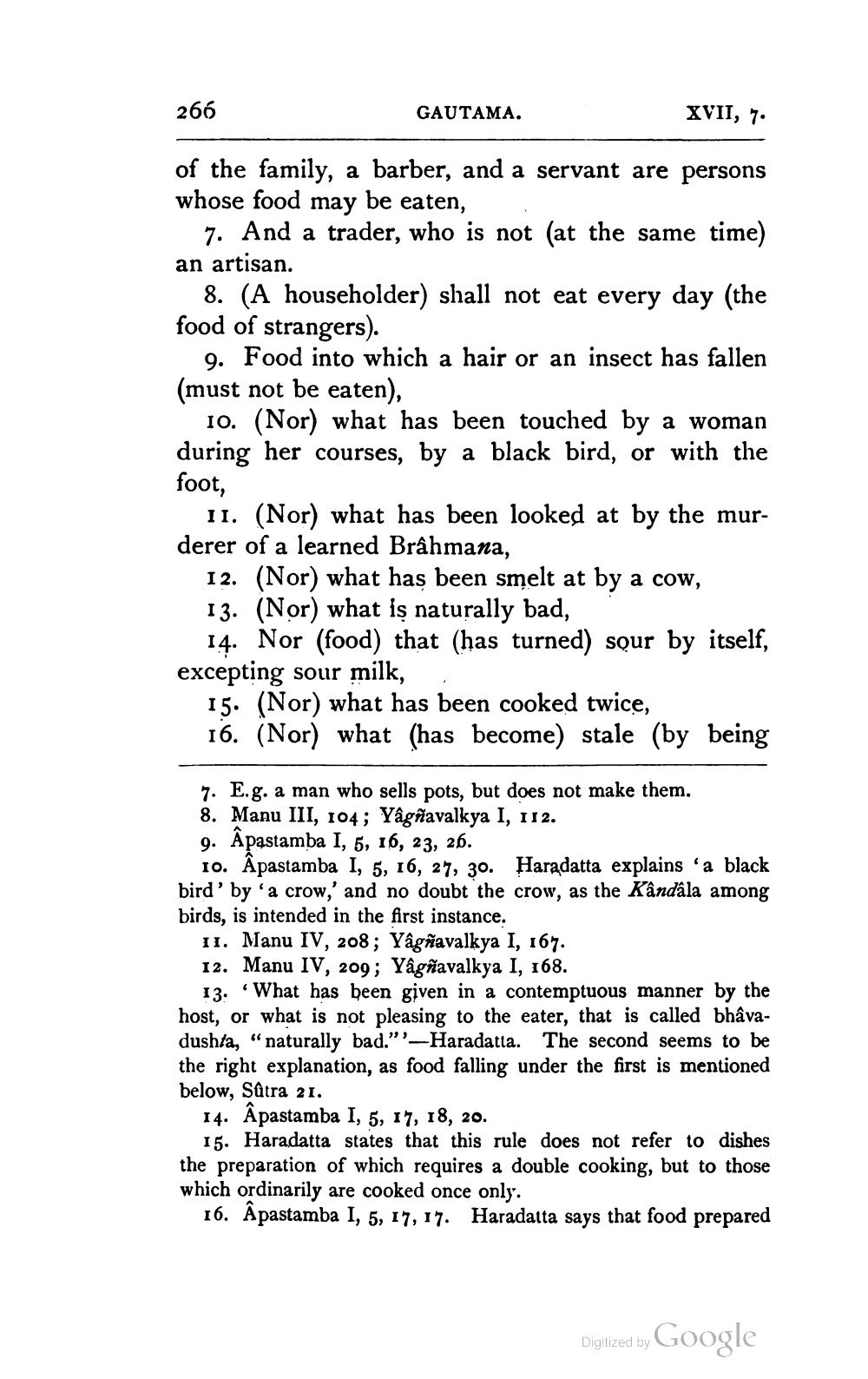________________
XVII, 7.
of the family, a barber, and a servant are persons whose food may be eaten,
7. And a trader, who is not (at the same time) an artisan.
8. (A householder) shall not eat every day (the food of strangers).
9. Food into which a hair or an insect has fallen (must not be eaten),
10. (Nor) what has been touched by a woman during her courses, by a black bird, or with the foot,
266
GAUTAMA.
II. (Nor) what has been looked at by the murderer of a learned Brâhmana,
12. (Nor) what has been smelt at by a cow,
13. (Nor) what is naturally bad,
14. Nor (food) that (has turned) sour by itself, excepting sour milk,
15. (Nor) what has been cooked twice,
16. (Nor) what (has become) stale (by being
7. E.g. a man who sells pots, but does not make them.
8. Manu III, 104; Yâgñavalkya I, 112.
9. Apastamba I, 5, 16, 23, 26.
10. Âpastamba I, 5, 16, 27, 30. Haradatta explains a black bird' by 'a crow,' and no doubt the crow, as the Kândâla among birds, is intended in the first instance.
11. Manu IV, 208; Yâgñavalkya I, 167.
12. Manu IV, 209; Yâgñavalkya I, 168. 13.
What has been given in a contemptuous manner by the host, or what is not pleasing to the eater, that is called bhâvadushta, "naturally bad."-Haradatta. The second seems to be the right explanation, as food falling under the first is mentioned below, Sûtra 21.
14. Âpastamba I, 5, 17, 18, 20.
15. Haradatta states that this rule does not refer to dishes the preparation of which requires a double cooking, but to those which ordinarily are cooked once only.
16. Âpastamba I, 5, 17, 17. Haradatta says that food prepared
Google
Digitized by




